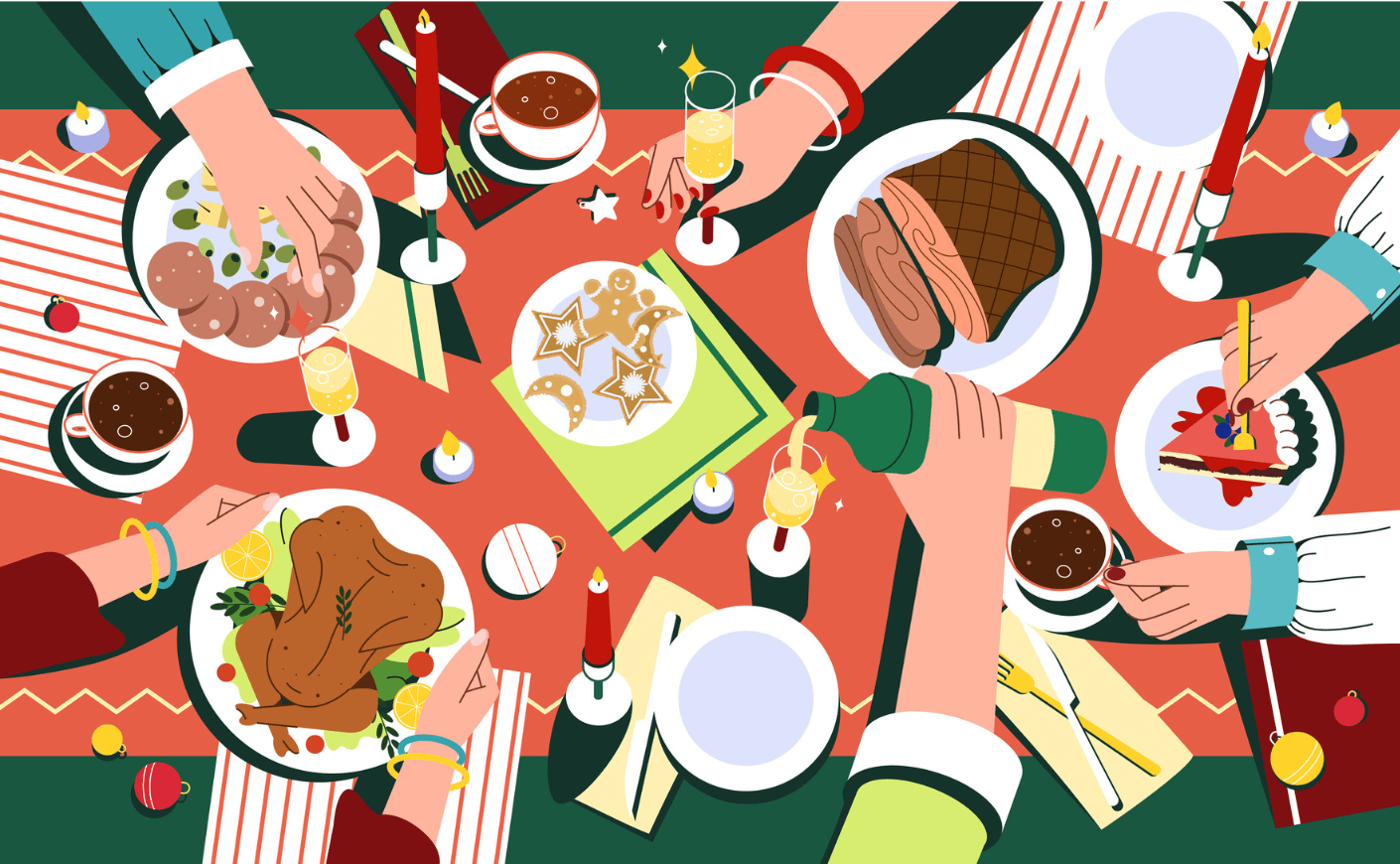I still remember being 12 and deep in my eating disorder when I walked into my extended family’s home on Thanksgiving. The comments began immediately: “You’re so thin, you get all the pumpkin pie tonight!” “You’re so disciplined — I wish I had your willpower.” Their concerns felt like compliments, and I kept them top of mind as I politely declined any foods I deemed “unsafe.”
A year later, post treatment, I returned to this same home in a new, bigger body. Again, I was met with comments, but they’d taken on a different form. “Wow, you gained so much weight,” my cousin said as she swung open the door. I was invited for a pre-turkey run to “make room for the impending indulgence,” and when second helpings were offered to my younger cousins who “needed them to grow big and strong,” I felt ashamed that I no longer appeared to need more food.
For those of us healing from eating disorders and disordered eating, the world is a triggering place everyday — but diet culture goes into overdrive around the holidays. Celebrations center indulgent food, and the preparation and recovery from these events center asceticism. In the past week, my pilates teacher encouraged the class to “fit in more cardio” to prepare for the Thanksgiving feast. My friend declined an ice cream date because she was “saving up her calories” for Thanksgiving. When I offered to send my extended family NYC bagels for Thanksgiving morning, they replied that they never eat carbs before the “main event.”
Throughout my decade of recovery, I’ve been actively fighting diet culture, and as a result, I’m now at a place where I genuinely look forward to holidays and the delicious food that accompanies them. Here are some strategies that have helped me to get there:
–Cope ahead. People make a ton of triggering comments about food, weight, and body, and it often accelerates around the holidays. I used to practice how I would respond to these comments with my mom and a recovered friend. Earlier in my recovery, my mom would call relatives ahead and share that I’d been having a hard time with food and body and would appreciate no comments being made around those sensitive issues — but, of course, people don’t always listen. When these tough topics came up, I would simply excuse myself and leave the room. As I gained more confidence, I practiced sharing more direct responses with loved ones: “I’ve been putting a lot of hard work into my relationship with food and my body, and those comments aren’t helpful for me right now,” or “I’ve been working on not assigning morality to foods and it’s been a very powerful new approach for me.”
–Don’t expect perfection. Have realistic expectations, and have compassion for your loved ones when they say the wrong things. We all grew up with toxic societal messages around food and body, and we’re all at different stages of unlearning. It’s easier to have compassion when you’ve appropriately coped ahead and can quickly shift to another topic of conversation.
–Lean on your village of support. Recovering from an eating disorder or disordered eating is easier with support. Reach out to your network ahead of time and see who will be around to answer an SOS call or text this holiday season. Nothing has helped me more to deescalate a tough situation than leaning on a peer who understands what I’m going through.
–Prioritize proper nutrition before, during, and after the holiday. All disordered eating stems from restriction. Nourish yourself consistently and regularly with a wide variety of foods, and urges to binge diminish significantly.
–Create memories outside of food. Lean into the true spirit of the holidays, which are about spending time with and giving thanks for the people we love. Ask everyone to go around the table and share what they’re most grateful for this year. Curl up for a holiday movie. Write letters of thanks for folks who’ve helped along your healing journey. Share happy memories from holidays past.
–Enjoy the food, and celebrate the small wins. This Christmas, I’m excited for the cornbread, macaroni and cheese, turkey, and whatever other delicious food our hosts prepare. I’m excited to bake cookies and pie with my nephew. And every year, I take a moment to recognize how far I’ve come in recovery, how proud I am of the hard work I’ve done, and how appreciative I am of how much bigger my life is than when I was in my eating disorder.
Kristina Saffran is the CEO of Equip, a virtual eating disorder treatment program













